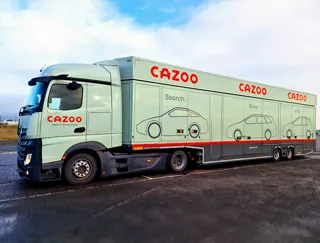Polestar refused to ‘pass judgement’ on the retail strategy of electric vehicle (EV) rival Tesla as it reiterated its plans to partner with traditional franchised car retailers to establish its UK sales offering.
Talking to AM at this week's Geneva Motor Show, the Gothenburg-based premium EV brand’s chief operating officer, John Goodman, said it was not his place to “pass judgement” on Tesla’s strategy to side-step the franchised model and own its own network of urban stores, but added that it had been Polestar's intention to “draw on the expertise of high-quality retail partners” from day one.
Tesla announced last week that it plans to embark on an online only sales policy as part of a new strategy which would see the closure of its self-operated stores to realise cost savings of around 5%.
While offering its own distinct route to market – with city centre 'Polestar Spaces' operating non-commission-based sales and an emphasis on vehicle subscription services – Polestar will rely on the franchisees of its Volvo sister brand to operate its aftersales and sales operation as it looks to make its mark in the premium EV market.
 The brand has already conducted discussions with Volvo franchisees and settled on its UK franchise partners, which are scheduled to open in four UK city centres in time for the Polestar 2’s market launch in Q2 2020, and has already signed “pre-agreements” with them, Goodman told AM.
The brand has already conducted discussions with Volvo franchisees and settled on its UK franchise partners, which are scheduled to open in four UK city centres in time for the Polestar 2’s market launch in Q2 2020, and has already signed “pre-agreements” with them, Goodman told AM.
Goodman said that, as yet, no decision had been taken with regards to the terms or support that might be offered to franchisees called upon to establish ‘Polestar Spaces’ in the expensive urban locations the brand wants to occupy in its bid to be aligned with top high street brands.
But he added: “We’re not asking our retail partners to invest in 1,000 square metres of ‘sales cathedral’. It is a case of fitting out a retail space of around 250 square-metres.”
Polestar cars can be serviced at any Volvo retail site, Goodman said, but he said some small investment may have to be made in specific tooling.
He also revealed: “We are talking to partners currently about delivery and handover and it may be that we have a specific Polestar handover bay at their Volvo dealerships.”
Asked whether Polestar’s model of eliminating commission and guaranteeing a fixed margin on each car sale – with no volume bonus – could pave the way for other brands to adopt something akin to an “agency approach”, Goodman said that could clearly be a side-effect of Polestar’s success.
He said: “If retailers see us and the way we do things and see that it’s successful will they then compliment that and perhaps accept a similar model from their other franchised partners, I expect they might.
“The reality is that the model places a lot of pressure on us to generate publicity around the brand and the demand we need to generate in order to get cars to market.
“Have dealers got cast iron guarantees that they are going to sell a certain number of vehicles with us? No they haven’t. But we wanted people to take that gamble, that leap of faith and come with us for the journey and I’m glad to say that we have a group of very well-respected and high-quality retailers on board to help us make this a success in the UK.”
 Goodman would not reveal the volumes that Polestar expected to generate with the Polestar 2, but said that, where the Polestar 1 performance coupe, would deliver 500 sales per annum, the Tesla 3-rivalling Polestar 2 would deliver sales globally which were “in the tens of thousands”.
Goodman would not reveal the volumes that Polestar expected to generate with the Polestar 2, but said that, where the Polestar 1 performance coupe, would deliver 500 sales per annum, the Tesla 3-rivalling Polestar 2 would deliver sales globally which were “in the tens of thousands”.
He added: “I’ve every expectation that we could be at the heart of a real EV explosion. The potential for our brand is huge.”
The Polestar 2 is expected to be priced at around the £40,000 marke when it goes on sale next year.
The all-electric model is four-wheel-drive and Polestar claims it will be capable of a 311-mile range.
 While Polestar will launch with an online retail platform which allows consumers to buy completely online or gain access to a Polestar via a car subscription package, Goodman said that there were no projections as to what the take-up of the latter offering might be in the UK market.
While Polestar will launch with an online retail platform which allows consumers to buy completely online or gain access to a Polestar via a car subscription package, Goodman said that there were no projections as to what the take-up of the latter offering might be in the UK market.
He suggested that the brand was not concerned with the nature of agreements with consumers, it simply wanted to deal with them in the best way to suit their needs.
He added: "For many people this might be their first purchase of an EV, they might not be overly familiar with the technology or the brand and the subscription takes away a lot of the stress attached to outright ownership. It could make sense for an awful lot of consumers.”

















Login to comment
Comments
No comments have been made yet.